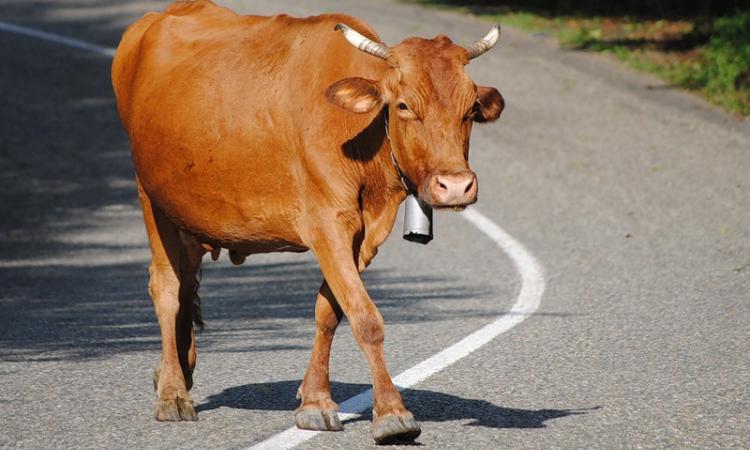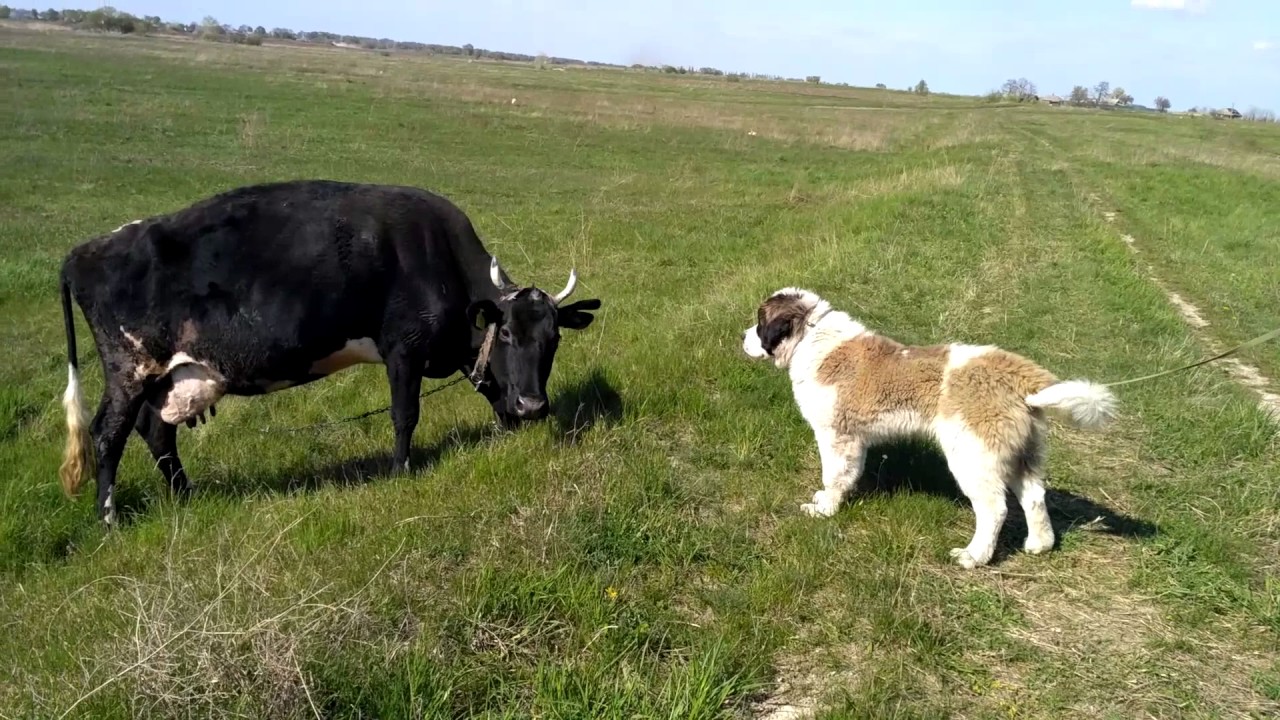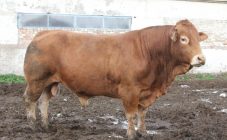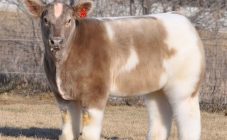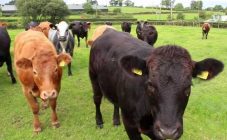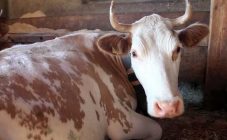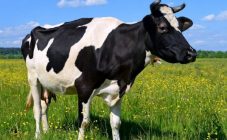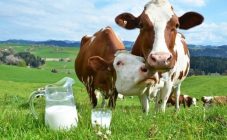Content:
Raising cattle is not only about getting tasty natural dairy products from them, but also many problems that arise. After all, it is not enough just to study the features of caring for them, you also need to learn not to create uncomfortable conditions for neighbors, who will not always be able to drive the cow from their site on their own. How to properly care for a cow, as well as ways to scare away cattle from your site, is described in this article.
Breeding and general rules for caring for cattle at home
Today you can not be afraid to take the first steps in breeding cows on your site. Thanks to many years of experience of farmers, you can find a lot of useful literature, forums and advice on caring for cattle, how to treat them in case of illness and much more. The first step is to carefully study the market and choose the very breed that will feel comfortable in the conditions that the future breeder can offer. Everything is taken into account: climate, terrain, land area, food that animals can receive in summer and winter. If you do not pay attention to all this, and simply give free rein to chance, then it is possible that the productivity of livestock will be very low.
If you have decided on the breed in advance, then before buying it is imperative to create all the conditions for livestock. These can be unused buildings, which, after minor repairs, will become a home for animals. The size of the room depends on the number of heads expected. It is important to remember that not only the cows should be comfortable there, but also the farmer, because the daily care of the animals is cleaning, cleaning, feeding and other things in the same room.
Problems and inconveniences that may arise when raising cattle
Of course, your own farm and your beloved cow is a definite plus. There will always be fresh milk that is 100% natural. In addition, you can earn a little extra money by selling it. However, keeping cattle has its drawbacks. Basically, these are inconveniences that will have to be experienced not only by the breeder himself, but also possibly by the neighbors in the area. The main problem is that cows can enter the garden, trample the entire crop, spoil and break things, leave behind cakes of manure. If this happens on the owner's site, then he himself will decide this issue. But what if the cows visited a neighbor?
This problem is actually quite common, because animals graze in the fresh air from morning to evening in the warm season. For them, there are no boundaries - they walk and go to the toilet wherever they want.The law of the Russian Federation does not provide for any measures in the event that the animal has trampled the entire garden, so the owners have to somehow resolve this issue on their own. Someone offers money, and someone believes that it is not their fault at all. So the question is: "How can I scare a cow away from my fence?" remains open.
How to scare cows away from your fence
First of all, you can think of a dog as a live watchman. Cows, horses, goats and other livestock have a fear of loud sounds, so if they hear barking, they will most likely bypass this area. The main thing is to bring up a real guard in the dog, otherwise the too friendly dog will rejoice at the arrival of unexpected guests.
You can build a scarecrow from available tools. The main condition is that it must produce sounds that will scare away animals. This can be done using empty plastic bottles and small items: nuts, pebbles. Due to the wind, these bottles will move, and the whole structure will work like a rattle. This method does not always work, as it completely depends on the weather conditions.
The next method, how to ward off cows, is not very pleasant. This is fine gravel that is uncomfortable for animals. The stones get stuck in the hooves of cows, the legs begin to hurt. Someone may think that this method is cruel towards animals, but cows, when they see gravel, will no longer want to walk on it and will bypass the garden.
The third and easiest way is with a solid fence. The cow is a pretty strong animal, so you will have to think carefully about the design of the fence so that the herd does not break it. Today it is also possible to purchase a special wire that is electrified. It can be moved half a meter from the fence and connected to the power supply. This method is really unsafe, including for humans.
What smell cows don't like
What odor does cows hate?
- Alcohol or vodka. Cattle representatives simply hate the smell of alcohol.
- Kerosene or gasoline. It is necessary to scatter rags soaked in this liquid over the area. They will smell and scare away animals.
- Manure smell. Cows will not eat grass that grows next to the cake. If you spread cow dung around the garden, then most likely the horned ones will visit much less often, but it will stink on the site too.
Cow and Horse Repeller
You can also buy an electronic cattle repeller in specialized stores. The principle of operation is that it emits low-frequency ultrasonic waves that are audible only to animals. It is a small device that runs on batteries. The only downside is that it may not like it and scare off other pets, so it's better to check this device before using it.
Eliminating other problems in raising cattle
Another, no less common problem when raising cattle, is the unpleasant odor that appears due to the vital activity of these animals. Unfortunately, compact devices for quick cleaning of the barn and the cows themselves have not yet been invented, so the breeder himself will have to pay special attention and time to this. If you clean the room from manure every day, clean the animals, you can avoid the strong smell of manure.
Advice and guidance from experienced breeders and veterinarians
The following tips from experienced livestock breeders will help you create a comfortable environment for keeping your cattle healthy:
- The floor in the barn should be covered with bedding that will prevent the animals from freezing during cold weather.During cleaning, it is advisable to replace it as it gets dirty.
- Be sure to check the barn for holes in the roof. Any precipitation can cause disease in animals, so the roof must be kept intact.
- Before milking animals, they must be washed, and the udder must be treated with a potassium permanganate solution or washed with water and laundry soap.
- In summer, cows receive all the nutrients they need in the yard. The owner can only add complementary foods to them. But for the winter, you should stock up on melons and hay.
- Calves are kept in separate boxes.
- Must be carried out in the barn and lighting. A lamp from 200 to 300 lux is placed at the drinkers and feed.
- If signs of a disease are found in cattle, you need to immediately call a specialist who can diagnose and prescribe the correct treatment.
Keeping cattle comfortable for everyone is not easy. However, if you take care of everything in advance, find out what smells cows are afraid of, what cows are afraid of in general, put up a solid fence or have a guard, clean the barn every day, you can avoid all sorts of problems and complaints from neighbors.
